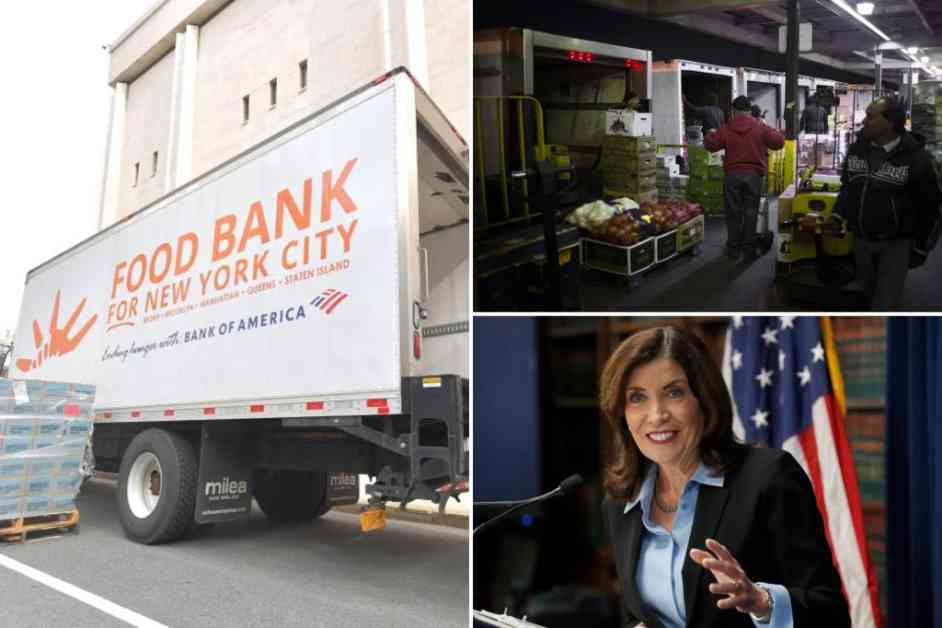Impact of Congestion Pricing on NYC’s Food Supply Chain: Challenges and Solutions
Representatives from the Food Bank For NYC, the NYC Hospitality Alliance, and Baldor Specialty Foods have raised concerns about the impending congestion pricing policy set to take effect on Jan. 5, 2025. This policy poses a significant threat to the city’s food supply chain, which serves millions of New Yorkers daily through restaurants, grocery stores, and food relief organizations.
Challenges Faced by Food Distributors
The city’s food distribution network, which includes essential businesses like restaurants, grocery stores, and food pantries, heavily relies on truck deliveries to function efficiently. However, the congestion pricing policy fails to acknowledge the vital role of these distributors in keeping the food system operational.
Financial Burden on Businesses and Consumers
The new policy would impose an additional tax on local food distributors, impacting businesses of all sizes, including nonprofits and the people they serve. As these costs are transferred down the supply chain, consumers can expect to see higher prices for essential goods like fresh produce, meat, fish, and dairy products.
Impact on Small Businesses and Low-Income Families
Small, locally owned businesses are already struggling with high costs due to inflation and complex regulations. The introduction of congestion pricing would further exacerbate their financial burden, resulting in increased prices for consumers. This would disproportionately affect low-income families, making food even less affordable for those already facing rising living expenses.
Public Health Concerns
Beyond the financial implications, congestion pricing could hinder New York City’s public health goals by limiting access to affordable, nutritious food. Rising food prices could worsen health disparities, particularly for individuals in low-income neighborhoods who are already at risk of chronic conditions like heart disease, diabetes, and stroke.
Call for Action
The representatives urge Governor Hochul and New York’s government leaders to consider the impact of congestion pricing on the food distribution system and local businesses. They advocate for an exemption for food and beverage distributors to ensure the city’s food supply chain remains stable and accessible to all New Yorkers.
In conclusion, the implementation of congestion pricing without exemptions for food distributors could have far-reaching consequences on the affordability, accessibility, and health of the city’s food system. It is crucial for policymakers to address these concerns and work towards a solution that supports the sustainability of New York City’s food distribution network.
























